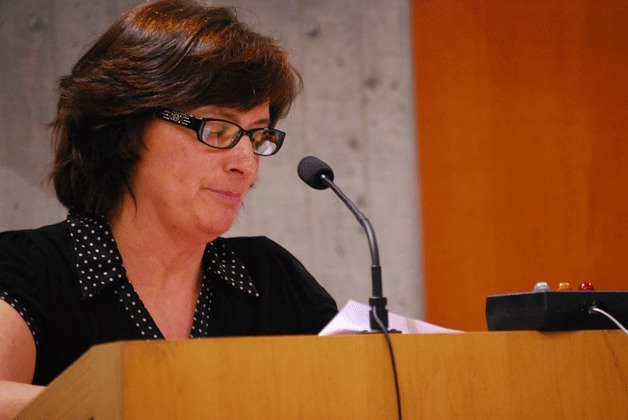The Bainbridge Island City Council passed Monday on the idea of having a public vote to decide where marijuana-growing businesses should be located.
Still, council members said the decisions they face on creating rules for legal pot are difficult, and they need more time to discuss potential regulations before scheduling a public hearing.
The council began wrestling this week with recommendations made by the city’s Planning Commission for new marijuana regulations.
Late last month, the commission approved by a slim 4-3 vote proposed rules that would allow marijuana growing in one type of residential zone on the island.
In response to public feedback, though, the council voted this week to continue the discussion at its next study session before scheduling a final public hearing.
“I’m conflicted in terms of the difference between a formal vote where people said they want to legalize marijuana and the comments that we’re receiving that said, ‘Not in my backyard,’” said Councilman Steve Bonkowski.
The commission’s conditions for marijuana-growing businesses on Bainbridge limit such production to Residential-0.4 zoned property (which allows one home on 2.5 acres) and on a minimum lot size of one acre. The production area will also be limited to 2,000 square feet of plant canopy or 15 to 20 plants.
Growing, the commissioners decided, must also be done outdoors or in greenhouses.
The remaining three conditions forwarded by the commission follow state-mandated conditions, which include setbacks, buffers and screening for grow areas, and a site plan review and city permit.
During Monday’s council meeting, Bonkowski said that while the community did vote to legalize marijuana, they did not get a chance to vote where marijuana businesses should be put.
Because of this, he said the way the ordinance is currently written may benefit from a community vote before the council moves forward.
An advisory ballot measure, however, would push the process for approving marijuana business regulations into next fall during the November election period and further stall business applicants.
“I’m not suggesting that it’s an easy decision or that I’ve made up my mind,” said Councilman Val Tollefson in response to Bonkowski’s concerns.
“But my view is that this [decision] is our job,” he said.
Mayor Anne Blair agreed.
“I think this is hard, and it is exactly why we were elected,” Blair said.
“I don’t think that we get to choose not to deal with something that’s hard and something that we don’t necessarily know the answer clearly right now,” Blair said. “I think we can work our way toward that, and we have an obligation to do that.”
Before the council took a vote on whether to schedule a public hearing or table the discussion for a second study session, a bit of community feedback echoed Bonkowski’s reservations on where growing should be allowed.
“Setbacks and screenings, the attempts to round off some of the square corners of this, do not address the security and safety concerns and basic odors and environmental issues associated with a narcotic production facility in a family neighborhood,” said Susan Wilmot, an Old Mill Road resident.
In the months leading to the commission’s recent decision, Wilmot has been outspoken against marijuana growing in her neighborhood, which has under Residential-0.4 zoning.
“I’ve worked for 30 years on my feet as a grocery checker to buy and fix up my dream home here,” Wilmot said.
“If this ordinance is applied my property value will decline and
my enjoyment of my own property will be compromised. I will not be able to open my windows on spring mornings and hot summer nights. I will not enjoy gardening or be able to hang out my laundry if the marijuana plants are being ventilated out into the air,” she told the council. “I will worry about my neighbors’ kids standing at the bus stop or playing outside in the new scent of the neighborhood.”
Councilwoman Sarah Blossom said she also agreed with the planning commission’s minority that voted against incorporating growing in Residential-0.4 zoned areas.
“I don’t think it’s our job to make sure that there’s enough space to rent in the area we zone it,” Blossom said. “I think it’s our job to decide where this use is appropriate to be located.”
Blossom said she was prepared to vote against the ordinance.
“I don’t support what’s come to us,” Blossom said.
Adversely, Councilman Wayne Roth said he would be able to vote in support of the ordinance.
“There’s no legal examples of growing it anywhere in this country that I know of,” Roth said. “Colorado struggled through.”
“I understand that there are imperfections and that we’re going to learn.”
Regardless, he said, the city staff and community has put extensive effort on the issue.
“I feel like there’s nothing I can add to that in terms of our role as the council except continue to be diligent on the ordinance and how we implement it and how it goes,” Roth said.
The council will continue the discussion during its April 21 study session.



